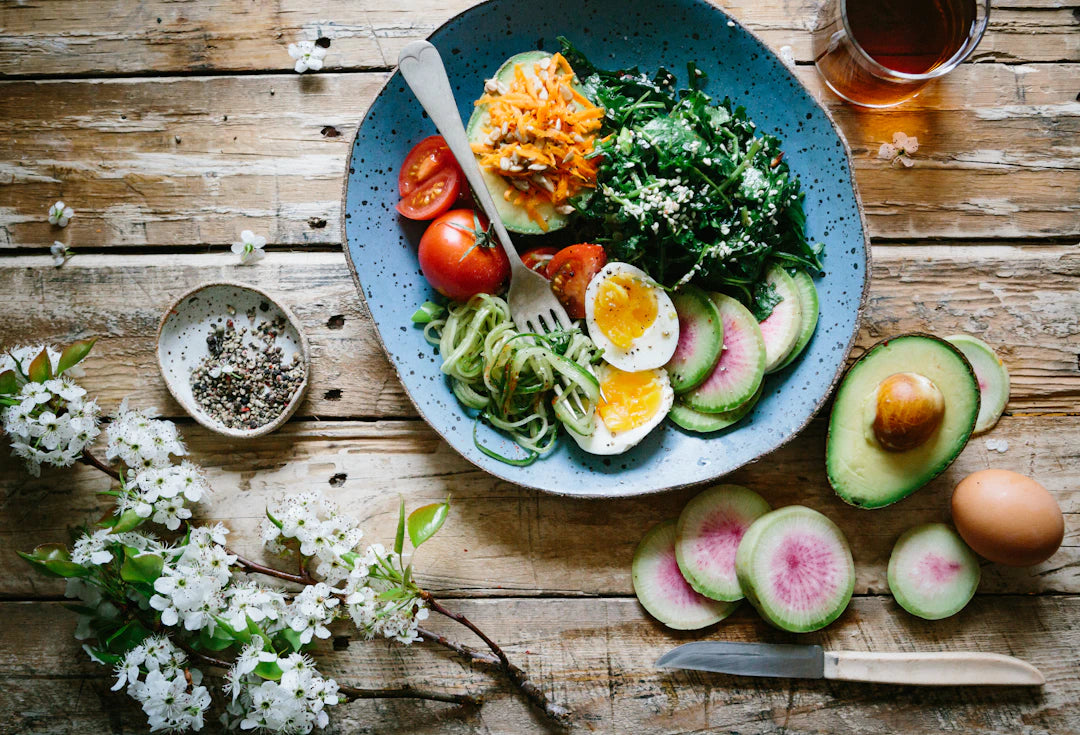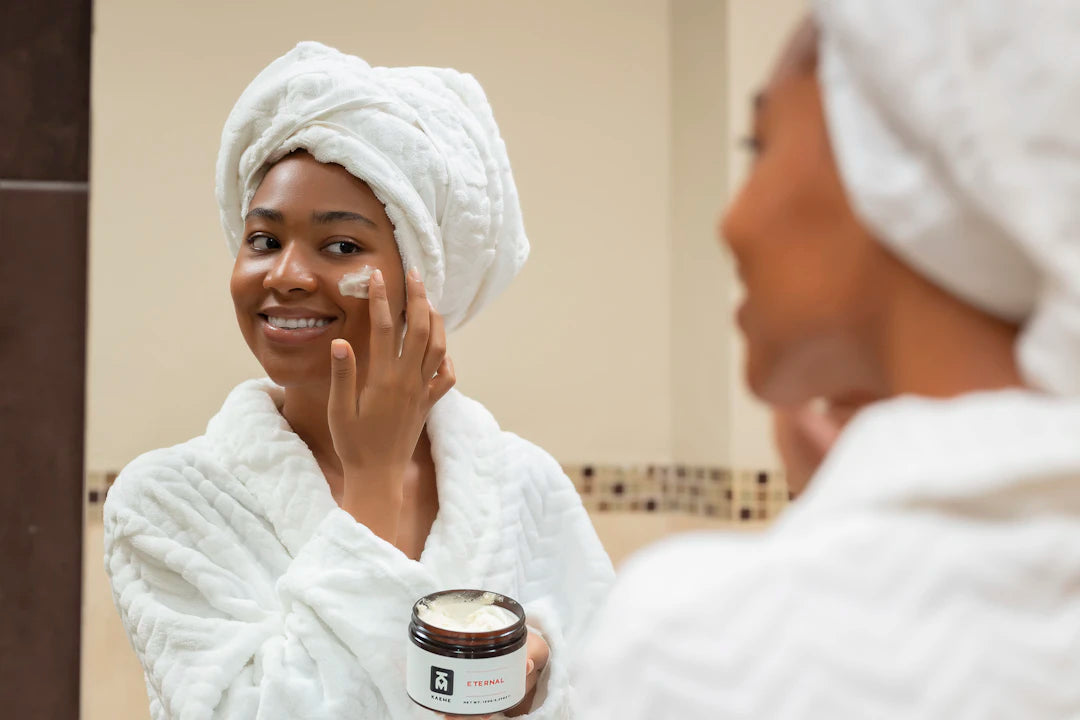The Surprising Connection Between Your Diet and Skin Care Routine

Your skin is a reflection of what you eat, and the intimate relationship between diet and skin care is often underestimated. Many individuals spend a considerable amount of time and money on high-end skincare products, like micro serum treatments and anti-wrinkle formulations, without realizing that the best place to start achieving flawless skin is on their plate. In this article, we’ll dive deep into how your diet influences your skin's appearance and overall health and how you can tailor your eating habits to improve your skin care routine.
The Science Behind Diet and Skin
Our skin is the largest organ in our body, and just like our internal systems, it requires proper nutrients to function optimally. The skin's health is intricately tied to the foods we consume, influencing everything from hydration to the aging process. By understanding this connection, you can make informed dietary choices that enhance your antiaging efforts, promote skin tightening, and ward off unwanted wrinkles.
Nutrients That Nurture Your Skin
When it comes to maintaining healthy skin, it’s crucial to pay attention to the nutrients that contribute to its vitality. Here are several key nutrients that should be integrated into your skin care routine:
- Omega-3 Fatty Acids: Found in fatty fish, flaxseeds, and walnuts, these healthy fats help reduce inflammation and keep your skin hydrated.
- Vitamins A and C: Carrots, sweet potatoes, citrus fruits, and leafy greens are loaded with these vitamins, which are known for their role in cell repair and boosting collagen production.
- Zinc: This essential mineral supports skin repair and is often found in pumpkin seeds, lentils, and chickpeas.
- Antioxidants: Foods rich in antioxidants, like berries, green tea, and dark chocolate, protect against oxidative stress and help reduce wrinkles.
- Water: Staying hydrated is fundamental. Drinking adequate water assists in keeping your skin plump and fresh.
The Role of Processed Foods
While it's essential to focus on what you include in your diet, it's equally important to be mindful of what you leave out. Processed foods, refined sugars, and excessive dairy can wreak havoc on your skin.
How Processed Foods Affect Your Skin
When your diet is high in processed foods, your bloodstream may experience increased sugar levels, leading to a process called glycation. Glycation occurs when sugar attaches itself to proteins in the body, leading to the formation of harmful new molecules known as advanced glycation end products (AGEs). These AGEs can damage collagen and elastin in your skin, resulting in premature sagging and wrinkles.
Inflammation and Skin Health
Additionally, diets high in refined carbohydrates can lead to chronic inflammation, exacerbating skin conditions such as acne, rosacea, and eczema. Instead, swapping out processed foods with whole, nutrient-dense options can have a profound impact on your overall skin health.
Foods to Embrace for a Glowing Complexion
To help achieve a glowing complexion and work towards a comprehensive skin care routine, consider incorporating the following foods into your diet:
- Berries: Packed with antioxidants, they combat free radicals that accelerate skin aging.
- Greens: Spinach, kale, and other dark leafy greens are hotbeds of vitamins and minerals that keep skin healthy.
- Sweet Potatoes: Rich in beta-carotene, these not only provide valuable vitamins but also improve skin tone.
- Nuts and Seeds: Almonds, walnuts, and sunflower seeds provide vitamin E, which protects against sun damage.
- Green Tea: Loaded with polyphenols, this beverage is excellent for reducing inflammation and preventing collagen breakdown.
How Eating Habits Impact Your Skin
It’s not just about the foods you eat but also how you eat them. Here are some eating habits that can positively influence your skin health:
Mindful Eating
Practicing mindfulness while eating can improve digestion and nutrient absorption. Avoiding distractions, like screens, allows your body to recognize when it's full and properly digest the nutrients needed for healthy skin.
Regular Meal Patterns
Maintaining a regular eating schedule helps regulate blood sugar levels and reduces inflammation. Aim for balanced meals that stabilize energy and avoid cravings for processed snacks and sugary treats.
The Relationship Between Hydration and Skin
Hydration plays a crucial role in the health of your skin. Not only does it maintain elasticity and promote a youthful appearance, but it also supports your body's natural detoxification processes.
Sipping Your Way to Glowing Skin
Increasing your water intake can radically benefit your skin. Proper hydration helps prevent dryness, making it easier for skincare products, such as micro serums, to be absorbed effectively by the skin. Aim for at least eight glasses of water a day, and include hydrating foods like cucumbers and watermelon in your meals.
Natural Supplements and Their Benefits
In addition to enhancing your diet with nutritious foods, specific supplements can provide additional benefits for skin health:
- Fish Oil: Known for its anti-inflammatory properties, fish oil can help control skin hydration and diminish the appearance of acne.
- Collagen Supplements: These can support skin elasticity and overall structure, combating signs of aging over time.
- Probiotics: These can balance gut health, which has been linked to the condition of our skin.
Combining Diet with Skincare Products
While a healthy diet is essential, effective skincare routines can amplify the results you achieve from consuming nutrient-rich foods. To fully harness the power of nutrition in your skincare:
The Power of Layering
Incorporate products with ingredients that align with your dietary focus. For instance, nutrients like vitamins C and E found in certain serums complement the antioxidant-rich foods in your diet. Similarly, incorporating antiaging and skin-tightening products within your regimen, like retinoids, can further enhance your glow.
Listen to Your Skin
Lastly, pay attention to how your skin reacts to various changes in your diet and skincare products. This will guide you in refining your routine and making better choices. If you notice that your skin improves when you consume more healthy fats or cut down on dairy, make it a permanent part of your lifestyle.
Final Thoughts: A Holistic Approach to Skin Care
Your skin is a mirror that reflects your inner health and the nourishment you provide through your diet. By consuming a balanced array of powerful nutrients, staying hydrated, and complementing your food choices with a solid skincare strategy, you can achieve healthy, radiant skin. It’s time to re-evaluate your eating habits and embrace a holistic approach to skin health that fosters longevity and vitality straight from your plate to your face!


